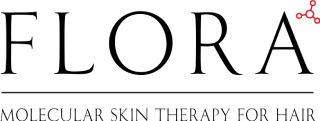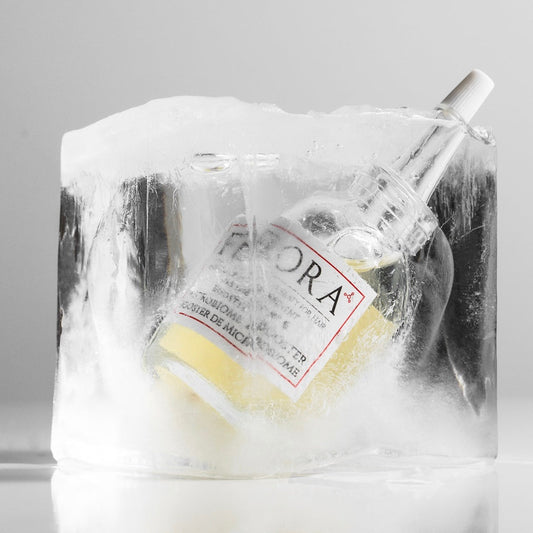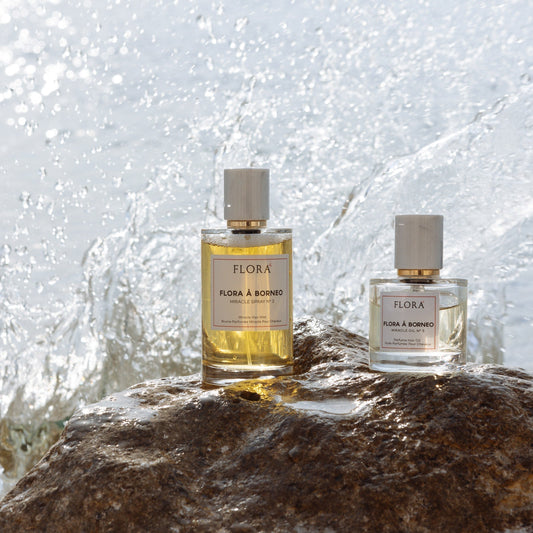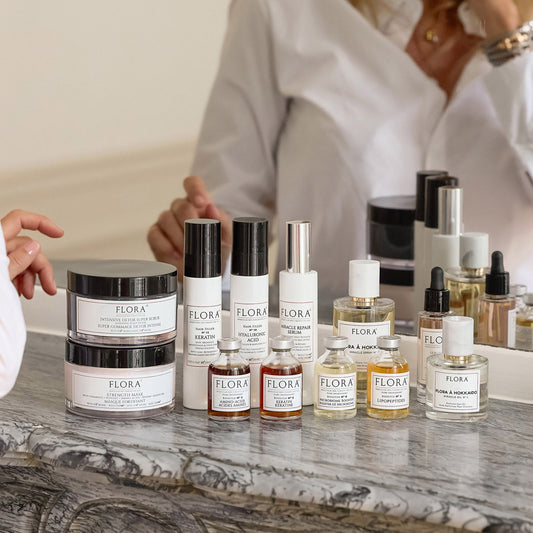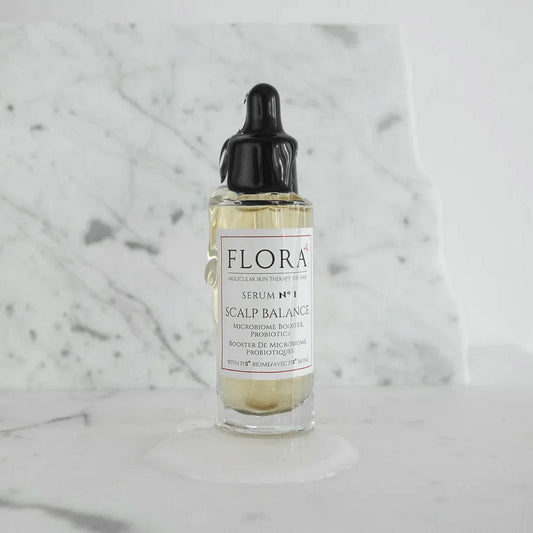What is menopause?
Menopause deals with a significant physiological transition in a woman's life, corresponding to the permanent cessation of menstrual cycles. This phenomenon typically occurs between the ages of 45 and 55, although the perimenopause phase (the transitional period preceding menopause, around ages 40-45) can begin earlier and last for several years.
Hormonally, menopause is characterized by a gradual decline in estrogen and progesterone levels, key hormones produced by the ovaries. These hormonal changes lead to noticeable effects on various bodily systems, particularly the skin and bones. Menopause is commonly associated with a variety of recurring symptoms, such as hot flashes, sleep disturbances, mood swings, vaginal dryness, and weight gain. Often neglected, but equally significant, are the effects on hair and scalp health.
Hormonal changes during menopause and their impact on hair and scalp
Hormonal changes related to menopause directly influence hair and scalp health. Several scientific studies have highlighted the links between the decline in female sex hormones and hair quality.
- The key role of estrogen : Estrogens play a protective role on hair follicles, promoting hair growth by extending the anagen (growth) phase of the hair cycle. During menopause, reduced estrogen levels shorten this phase, leading to faster hair loss and less hair renewal.
- The impact of androgens : As estrogen decreases, androgens (male hormones naturally present in women) become more dominant. This hormonal imbalance can cause a condition known as female androgenetic alopecia (hormonal hair loss), which manifests as diffuse thinning on the top of the scalp rather than localized bald patches as seen in men.
- Changes in hair texture and quality : In addition to hair loss, changes in texture and appearance are often observed. Hair becomes thinner, more fragile, and drier due to reduced sebum production by the sebaceous glands. The loss of natural scalp hydration can also lead to itching and irritation.
- Disruption of the hair cycle The hair cycle consists of three phases: anagen (growth), catagen (rest), and telogen (shedding). The hormonal imbalances of menopause can cause hair follicles to prematurely enter the telogen phase, increasing hair shedding and reducing active hair growth.
Flora's holistic routine to prevent and/or treat the effects of menopause on hair and scalp
The effects of menopause on hair and scalp can manifest in various ways :
- Increased hair loss: It is common to experience more significant hair loss during or after menopause, often diffuse on the top of the scalp. This loss may be gradual or more sudden, depending on the individual.
- Thinning hair: Hair density decreases, with hair becoming finer, less voluminous, and more prone to breakage.
- Dry scalp: Reduced sebum production can make the scalp drier, sometimes leading to dandruff and itching.
- Duller hair: Reduced nutrients and hydration due to hormonal changes can make hair duller and harder to style.
Here’s Flora’s holistic routine to take care of your hair, either preventively or curatively.

OUT ROUTINE
-
Cleanse and strengthen in one step
Gentle Fortifying Shampoo N2
Our shampoo is not just a cleanser: it’s also a powerful fortifying, densifying, and anti-hair loss treatment. Fortifying Shampoo N°2 acts on both the scalp and hair fiber. Its active ingredients restore the balance of the microbiome and natural pH, for healthy hair from the roots. It strengthens hair resistance to aging signs and external aggressions like pollution, UV exposure, frequent drying or straightening. This scalp-friendly treatment adds density and freshness without weighing down the hair. -
Deeply nourish and repair
Intensive Repair Mask
At the heart of this treatment is our patented FP5® Biome complex, containing amino acids, marine bioactives, and micro-peptides. This rebalancing base promotes overall hair health, leading to denser and shinier hair. It particularly strengthens fibroblast cells, also known as support cells, which guarantee hair fiber solidity and resilience. -
Stimulate to densify
Density Serum
Serum N°4 Density deeply nourishes the scalp, which, once cleansed and boosted, promotes the growth of thick, strong hair. This treatment contains peptides that reactivate stem cells and fibroblasts, while stimulating collagen synthesis, a reparative and regenerative protein. -
Plump and add volume
Hair Filler Hyaluronic Acid
Hair Filler N°10 Hyaluronic Acid plumps the hair from within. It provides suppleness, hydration, volume, and shine for beautiful, healthy hair. -
Give a boost
Amino Acid Booster
They boost hair growth by stimulating the production of keratin essential to its structure. Nourishing amino acids make the fiber stronger and healthier.
IN ROUTINE
Adopting a balanced diet rich in micronutrients, antioxidants, and essential fatty acids can promote hair health. Reducing stress also helps, as high cortisol levels can negatively affect hair health. Stress management techniques like meditation, yoga, breathing exercises, nature walks, and calming activities can be beneficial.
EXTRA BEAUTY TIPS
- Scalp Massage: Stimulating blood circulation with regular massages can improve nutrient supply to hair follicles and promote regrowth.
- Gentle Brushing: Use a comb to detangle hair gently to avoid breaking the hair fiber.
KEY INGREDIENTS TO TARGET WHEN CHOOSING HAIR CARE PRODUCTS
All present in the Flora Lab Paris haircare range to offer the best for your hair and scalp.
-
Keratin
Function: The main component of hair, keratin strengthens the hair structure and helps reduce breakage and split ends. -
Collagen
Function: Collagen supports the structure of hair follicles, improving hair elasticity and strength. It is also beneficial for hydrating the scalp. -
Niacinamide (Vitamin B3)
Function: Improves blood circulation in the scalp, enhancing nutrient supply to hair follicles and helping to maintain optimal hydration. -
Amino Acids (L-cysteine, L-methionine)
Function: These amino acids are the building blocks of keratin, essential for hair growth and strength. -
Panthenol (Provitamin B5)
Function: Hydrates and protects the hair fiber, improving elasticity and strengthening the hair. It also soothes irritated scalp.
Usage: Incorporated in shampoos, conditioners, and masks to nourish and repair. -
Peptides
Function: Help reinforce hair structure and stimulate the production of proteins like keratin and collagen, which are essential for strong, resilient hair. -
Hyaluronic Acid
Function: Deeply hydrates hair and scalp, preventing dryness and irritation. It also helps restore hair’s suppleness. -
Biotin (Vitamin B7)
Function: Promotes hair health by strengthening the hair fiber and improving keratinization. A biotin deficiency can lead to increased hair loss. -
Zinc
Function: Helps regulate sebum production, prevents scalp irritation, and plays a role in cell division, which is necessary for hair growth. -
Vitamin D
Function: Stimulates hair follicles and promotes hair regrowth. A vitamin D deficiency is often linked to hair loss.
